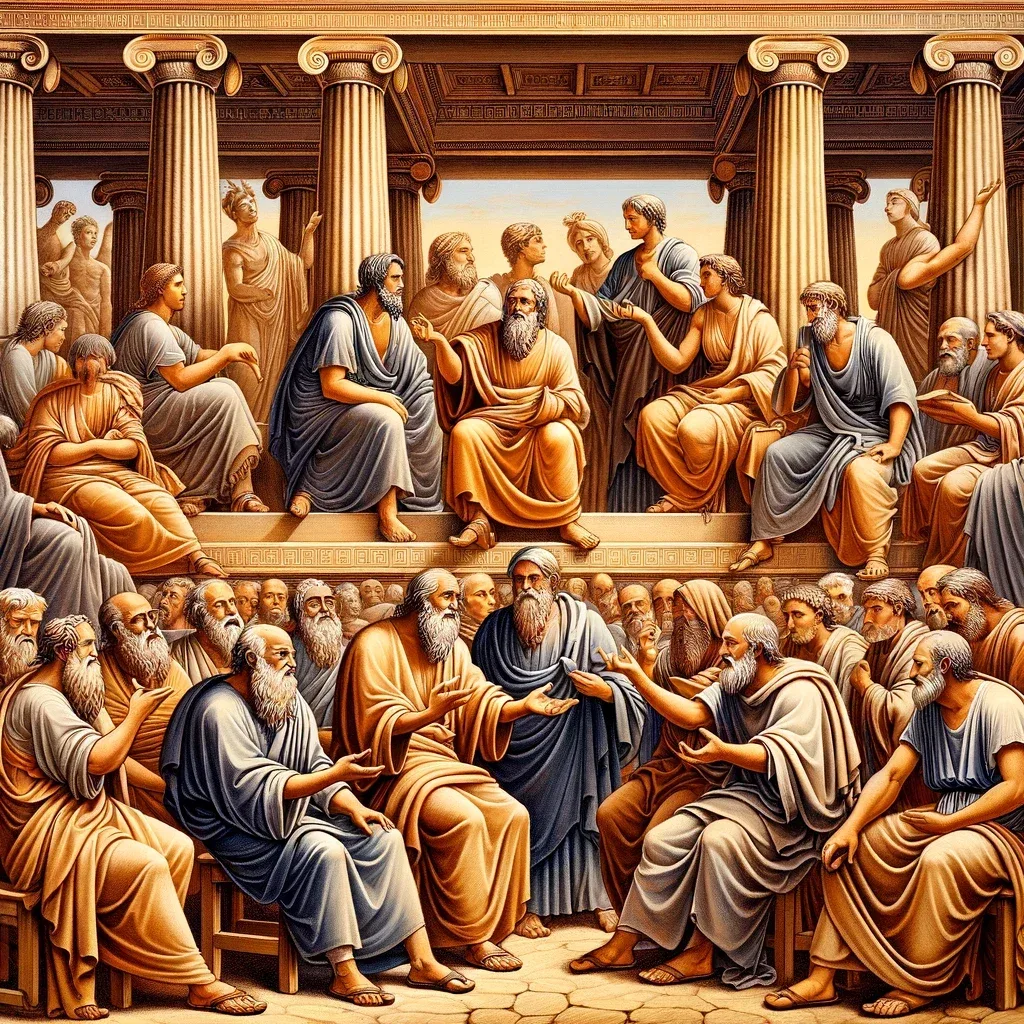The Peripatetic school, founded by Aristotle in the XNUMXth century BC, represents a significant milestone in the history of philosophy and science. Originating in Ancient Greece, this philosophical school derives its name from the Greek term “peripatetikos”, which means “walking around”, a reference to the walks of Aristotle and his students while discussing philosophical questions. This article explores in depth the essence and teachings of the Peripatetic school, delving into its principles, methodologies and lasting impact on Western culture and thought.

Foundation and History

Origins and Context
The Peripatetic school was established by Aristotle after his departure from Plato's Academy. Located at the Lyceum in Athens, the school functioned more like a research institute, where Aristotle, his students and followers conducted studies in different areas of knowledge. The school got its name due to the walks (peripatos) that Aristotle took with his students in the Lyceum gardens while he was teaching.
Development and Influence
Under Aristotle's leadership, the Peripatetic school flourished, becoming a center of learning and research. After Aristotle's death, the school continued to operate under various leaders, maintaining its relevance and influence in the Greek world for centuries.
Notable Contributions
The school is known for its significant contributions in fields such as logic, ethics, politics, metaphysics, and natural sciences. His teachings profoundly influenced the development of Western thought, shaping later disciplines and schools of thought.
Philosophy and Teachings

Methodology and Approach
The Peripatetic school is notable for its empirical and rational approach to the pursuit of knowledge. Aristotle emphasized the importance of observation and analysis in understanding the natural world and human affairs.
Ethics and Politics
Aristotelian ethics, centered on the idea of “virtue” and the concept of “good life”, was one of the pillars of the Peripatetic school. In politics, Aristotle defended the importance of the polis (city-state) and civic participation for human well-being.
Metaphysics and Natural Sciences
The school also excelled in its metaphysical approach, investigating the nature of being, substance and cause. In the natural sciences, Aristotle and his followers carried out extensive observations and classifications, laying the foundation for many modern sciences.
Impact and Legacy

Influence on the Ancient World
The Peripatetic school had a significant impact on the Greek and Roman world, influencing thinkers and politicians. His ideas were integrated into various areas of knowledge and public life.
Relevance in the Modern Era
The school's contributions continue to be relevant, influencing modern philosophy, science and education. His teachings on logic, ethics and politics, in particular, remain fundamental in contemporary thought.
Permanent Legacy
The legacy of the Peripatetic school is seen in the continued relevance of its ideas and methodologies. Aristotle's works are still studied and revered, testifying to the durability of his teachings.
Conclusion

The Peripatetic school, with its comprehensive and grounded approach to knowledge, continues to be a pillar in the study of philosophy and science. Its founder, Aristotle, left an immense legacy that transcends eras and cultures, standing out as one of the most influential thinkers in history. This article offers just a glimpse of the richness and depth of his teachings, inviting the reader to further explore the vastness and relevance of the Peripatetic school.






